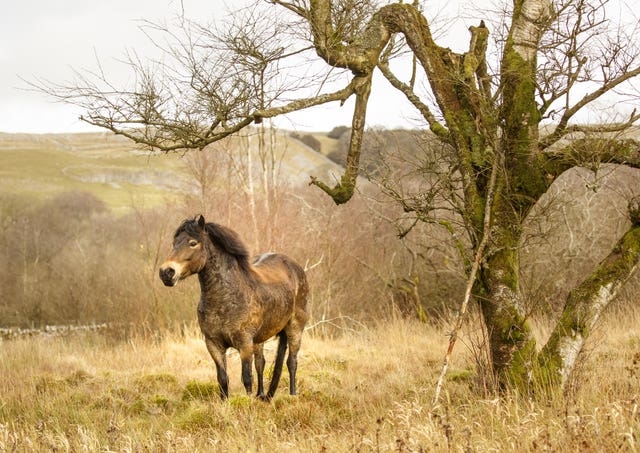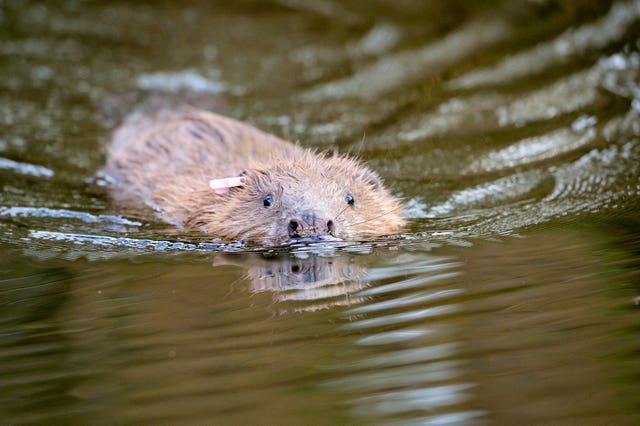
National parks need wilder areas to boost declining wildlife, campaigners have urged ahead of the 70th anniversary of the first designated park.
The Government should adopt recommendations in an independent review of national parks and other designated landscapes that called for them to have wilder areas to help restore nature, campaign group Rewilding Britain said.
The call comes as the Peak District National Park marks its 70th anniversary on Saturday as the first UK national park, designated on April 17, 1951.
Rewilding Britain’s policy and campaigns co-ordinator Guy Shrubsole said national parks should lead the way on rewilding landscapes to help make Britain wilder and more nature-rich.

The UK has been described as one of the most nature depleted countries on Earth.
Rewilding involves large scale restoration of ecosystems, with woodland and pastures allowed to regrow, rivers and wetlands returning to a more natural state, and native livestock – or even beavers – used to manage the landscape more naturally and support other wildlife to return.
It has proved controversial in some quarters amid concerns it involves abandoning land that should be used for food production.
But supporters say it can boost jobs in areas such as conservation and eco-tourism, while helping nature and allowing food production to continue.
Mr Shrubsole said: “Our national parks need to be leading the way towards a wilder Britain, with a massive expansion of rewilding to tackle climate breakdown, reverse the decline in species and boost rural economies.
“While the state of nature in Britain might be even worse were it not for our protected areas, huge areas of our national parks are now ecological shadows of what they could be, when they should be bursting with wildlife.”
An Environment Department (Defra) spokesperson said the Peak District, which is celebrating its 70th birthday, was a stunning example of what national parks have to offer.
“Since commissioning an independent Landscapes Review into the protections of designated landscapes, the Prime Minister has made a commitment to establish new national parks and areas of outstanding natural beauty (AONBs), making them even greater havens of biodiversity, protecting 30% of England’s countryside by 2030,” the spokesperson said.
Why do we need #rewilding?
Why we must think big and act wild.https://t.co/YP31RwiKda pic.twitter.com/mW8pOFR7ha
— Rewilding Britain (@RewildingB) April 13, 2021
While the Government has committed to protect 30% of the UK’s land by 2030 to support the recovery of wildlife, conservationists warn much of the existing protected areas are national parks and AONBs which do not necessarily deliver for nature.
Mr Shrubsole said: “It’s simply not credible for the Prime Minister to claim that national parks in their current degraded state count towards the Government’s pledge to protect 30% of the UK’s land and sea for nature by 2030.”
Some national park authorities have set out plans for nature within their boundaries, with Exmoor’s plan including thousands of acres of wilder areas, totalling 10% of the park, where natural processes will be allowed to take their course.
But Mr Shrubsole said the Government should mandate wilder areas across all national parks to help deliver on national priorities such as action on climate and nature.
The Government said it will respond in due course to the Glover Review of designated landscapes in England in 2019, which made recommendations including a new statutory purpose to help nature recovery and actions to deliver it such as wilder areas.

Mr Shrubsole said: “We hope this year, to mark the 70th anniversary of Britain’s first national park, that the Government adopts the idea of wilder areas in national parks, as the Glover Review recommended – allowing our national landscapes to thrive in the century ahead.”
And he suggested public land in national parks, including areas owned by the Forestry Commission, Ministry of Defence and local authorities could be a focus for creating wilder areas.
National park authorities could play a coordinating role between private landowners, and parks should have more funding to carry out landscape-scale nature restoration projects within this Parliament, he added.
Defra pointed towards support for the work of national parks and AONBs through the £640 million “nature for climate fund” and the £80 million “green recovery challenge fund” to help kick-start nature based projects.


Comments: Our rules
We want our comments to be a lively and valuable part of our community - a place where readers can debate and engage with the most important local issues. The ability to comment on our stories is a privilege, not a right, however, and that privilege may be withdrawn if it is abused or misused.
Please report any comments that break our rules.
Read the rules here